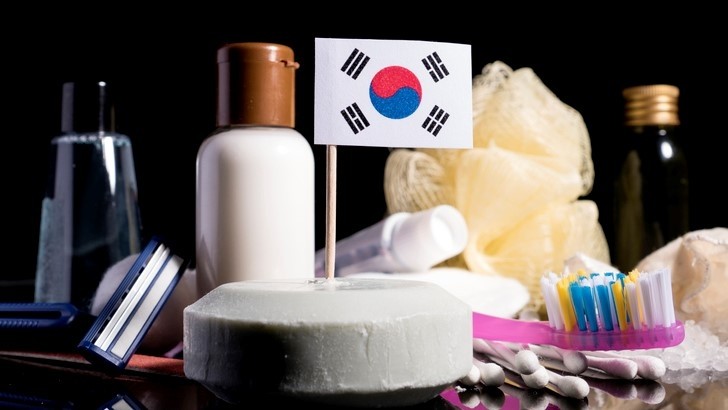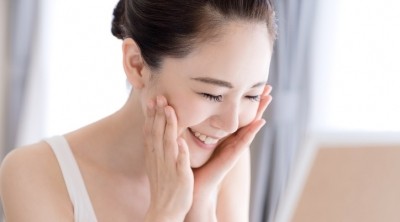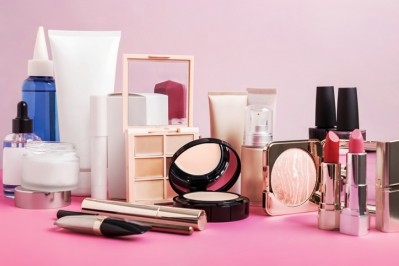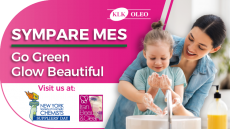Korea focus: Most-read stories on South Korean beauty industry

1 – Sustainable packaging: Innerbottle gears up for Series A funding as it takes on the global cosmetic market
South Korean packaging start-up Innerbottle will soon be starting its first round of funding as it seeks to take its sustainable packaging solution to the world stage.
Innerbottle was founded by CEO Steve Oh, a former patent lawyer, who developed a mechanism to solve the problem of residue waste in cosmetic products with special silicone balloon-like insert. This ‘innerbottle’ ensures that the outer shell clean and ready for recycling.
The firm will open for investment the week after its debut at Cosmopack Asia in Hong Kong, where its product has received plenty of interest from visitors.
Oh believes Innerbottle covers the limitations of other sustainable packaging solutions available now.
“For instance, reusing ocean plastics, while important, has limitations in cosmetics. The major problem is that there is no traceability. You don’t know where it came from or what chemicals were used to treat it.”
2 – Good sprout: Oat extract found to reduce eczema symptoms – Korea study
Sprouted oat extract has potential as an ingredient to help alleviate eczema symptoms, with a new study from Korea showing it reduced skin itchiness and erythema by 32%.
In a study by the Rural Development Administration and Konkuk University of Veterinary Medicine, researchers from Korea conducted an experiment on mice to verify its efficacy on improving the symptoms of atopic dermatitis (eczema).
Mice were divided into control, sprout oat extract treatment (200µL), and an oil treatment group.
All the mice were induced with eczema, before treatment was applied to the skin for three weeks.
Using SCORAD to assess the extent and severity of eczema, those in the control group scored 43, while the sprout oat extract group scored 29.4, showing a 32% reduction between both groups. Researchers observed there was less itching and erythema in the latter.
3 – Playing games: J&J-owned Dr. Ci:Labo ramps up travel retail presence to attract more Chinese consumers
Japanese skin care label Dr. Ci:Labo is tapping into travel retail with a virtual interactive game targeted at Chinese consumers travelling in South Korea.
The game, which is exclusively available in South Korea, can be accessed via Weibo, WeChat and CTrip. It features Chinese celebrity and brand ambassador Liu Yuning and an animated character Dr. Rabbit as they journey though South Korea to “solve pore issues”.
Users can collect points by solving these puzzles and redeem special gifts including a limited-edition bottle signed by Liu Yuning, at selected Korean duty free locations operated by Shinsegae Duty Free, Lotte Duty Free, Doota Duty Free, HDC Shilla Duty Free and Hyundai Department Store.
Sandrine Tesnière, head of marketing, media and digital travel retail Johnson & Johnson told CosmeticsDesign-Asia that it chose to roll out the campaign in South Korea as it still remains a hot destination for Chinese tourists.
“Dr. Ci:Labo has a strong business presence in South Korea, and Chinese consumers continue to travel significantly to that destination. Chinese inbound traffic to Korea was up 28% YTD August vs. last year. So, it made sense to support our retail partners in Korea with this initiative.”
4 – Why K-beauty make-up brands may be losing the trust of Singaporeans
South Korean make-up brands may be losing their lustre with Singaporean beauty consumers, with Western outfits taking over when it comes to trust.
K-beauty colour cosmetic brands, which usually secure top ranking in an annual consumer trust survey undertaken by Daily Vanity, are being beaten by western brands including Benefit, MAC Cosmetics, NARS and Urban Decay.
US make-up brand It Cosmetics rose 57 places to cinch the top spot as the most trusted make-up brand in the country.
Korean make-up brands that remained in the top 10 ranking were Innisfree, Laneige and Etude House, which took fourth, sixth and seventh place respectively.
COO and editorial director of Daily Vanity, Kristen Juliet Soh, attributed this decline to the inadequacies of some South Korean make-up products.
5 – Quadpack eyes Japan and South Korean beauty market to drive its APAC growth
Packaging solutions firm Quadpack is looking to Japan and South Korea to drive its growth in Asia Pacific on the back of two years of growth in both markets.
Jason Smith, regional director of Asia Pacific, Quadpack told CosmeticsDesign-Asia Quadpack sees APAC as a significant market for its cosmetics business.
“As Asia Pacific accounts for over a third of total global cosmetic exports, securing a position as a key packaging supplier to this market is a critical part of Quadpack’s long-term vision. This is only reinforced with the region’s production tipped to grow much faster than the likes of Europe and the Americas over the next few years,” he said.
In the last two years, the company has been performing particularly well in Japan and South Korea. According to Smith, the “phenomenal” success was largely driven by its wood offerings manufactured by its Quadpack Wood facility.
Smith elaborated: “One example is the cap we created for Korean brand The SAEM for its new luxury skincare range for men. Beautifully crafted from sustainably-sourced ash, it perfectly follows the company’s ethos of finding inspiration in nature.”









![Indus Valley is working to corner 30% of India's online premium boxed hair colour market. [Indus Valley]](/var/wrbm_gb_food_pharma/storage/images/_aliases/wrbm_tiny/publications/cosmetics/cosmeticsdesign-asia.com/article/2024/07/26/indus-valley-aims-to-secure-30-of-india-s-online-premium-hair-colour-market-with-organic-offerings/17594932-5-eng-GB/Indus-Valley-aims-to-secure-30-of-India-s-online-premium-hair-colour-market-with-organic-offerings.jpg)
![[Getty Images]](/var/wrbm_gb_food_pharma/storage/images/_aliases/wrbm_tiny/publications/cosmetics/cosmeticsdesign-asia.com/china/china-focus-latest-developments-in-china-s-booming-beauty-market25/17606695-1-eng-GB/China-focus-Latest-developments-in-China-s-booming-beauty-market.jpg)
![Kosé has launched makeup brand Visée in Singapore as part of plans to reinforce its position in SEA. [Visée]](/var/wrbm_gb_food_pharma/storage/images/_aliases/wrbm_tiny/publications/cosmetics/cosmeticsdesign-asia.com/headlines/business-financial/visee-singapore-kose-aims-to-enhance-brand-visibility-in-sea-with-new-launch/17587264-1-eng-GB/Visee-Singapore-Kose-aims-to-enhance-brand-visibility-in-SEA-with-new-launch.jpg)
![ble C&C is set on reinforcing its competitiveness in China’s beauty market. [Missha]](/var/wrbm_gb_food_pharma/storage/images/_aliases/wrbm_tiny/publications/cosmetics/cosmeticsdesign-asia.com/headlines/business-financial/able-c-c-aims-to-strengthen-competitiveness-in-china-through-online-expansion-kol-collabs/17591626-1-eng-GB/Able-C-C-aims-to-strengthen-competitiveness-in-China-through-online-expansion-KOL-collabs.jpg)

![LG H&H genetic study says 23 genetic regions affect natural skin tone. [Getty Images]](/var/wrbm_gb_food_pharma/storage/images/_aliases/wrbm_tiny/publications/cosmetics/cosmeticsdesign-asia.com/article/2024/07/23/lg-h-h-discovery-of-genetic-skin-tone-factors-in-east-asians-potentially-key-to-skin-radiance-developments/17587210-1-eng-GB/LG-H-H-discovery-of-genetic-skin-tone-factors-in-East-Asians-potentially-key-to-skin-radiance-developments.jpg)

![DR.CI:LABO expects brand-supplier partnerships gain more public prominence as consumers interest in skin care grows online. [Dr.Ci:Labo]](/var/wrbm_gb_food_pharma/storage/images/_aliases/wrbm_tiny/publications/cosmetics/cosmeticsdesign-asia.com/article/2024/07/22/brand-supplier-partnerships-will-come-to-the-fore-amid-the-online-skin-care-landscape-dr.ci-labo/17576755-1-eng-GB/Brand-supplier-partnerships-will-come-to-the-fore-amid-the-online-skin-care-landscape-DR.CI-LABO.png)


